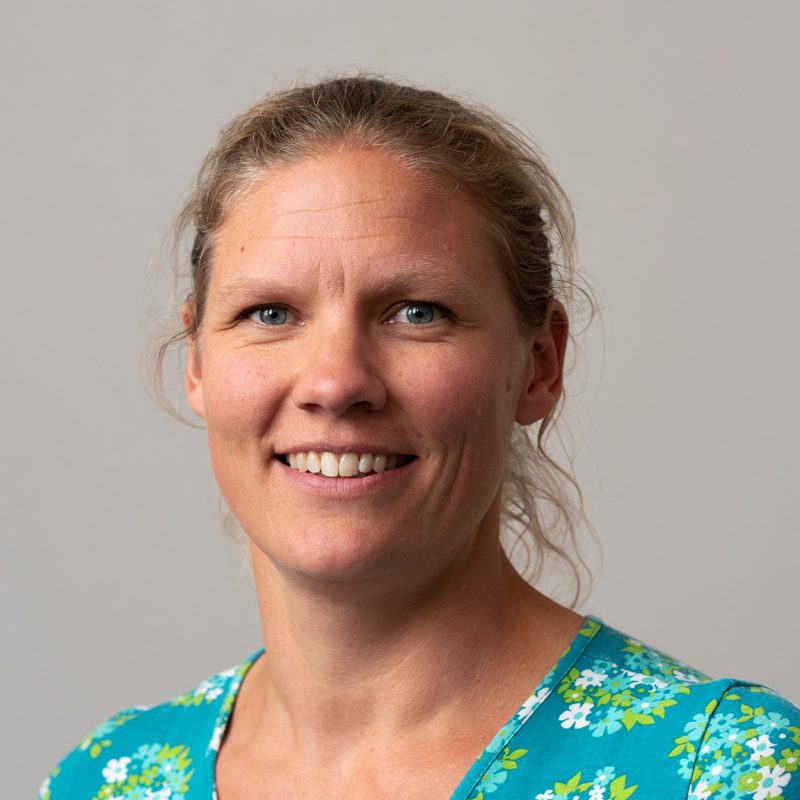- - English

| Position | Docent fysiologie |
| Research fields |
Hiske van Duinen ontving haar Master in de biologie aan de Rijksuniversiteit Groningen (2002) en haar doctoraat in de medische wetenschappen (medische fysiologie) van de Rijksuniversiteit Groningen (2007). Tijdens haar doctoraat bestudeerde ze de relatie tussen lichamelijke vermoeidheid en cognitieve prestaties onder toezicht van Dr. Inge Zijdewind. Na haar promotie, deed ze als postdoc studies naar de mensen hand aan de Prince of Wales Medical Research Institute (nu bekend als Neuroscience Research Australië) in Sydney, Australië, onder de supervisie van Simon Gandevia en Dr Janet Taylor, en deed ze onderzoek naar proprioceptie aan het Karolinska Instituut in Stockholm, Zweden, op een Marie Curie-beurs van de Europese Onderzoeksraad.
In 2014 keerde ze terug naar de sectie medische fysiologie als docent in de fysiologie. Ze doceert nu alle soorten fysiologie aan studenten in het medisch curriculum, Tandheelkunde, Bewegingswetenschappen, het University College Groningen (UCG), Faculty of Science and Engineering (FSE), en gedrags-en cognitieve neurowetenschappen (BCN). Voorbeelden van onderwerpen binnen de fysiologie zijn de gehele vegetatieve fysiologie, met cardiovasculaire fysiologie, pulmonaire fysiologie, gastro-intestinale fysiologie, metabolisme, endocrinologie, renale fysiologie en ook inspanningsfysiologie.
Daarnaast is zij betrokken bij de organisatie van het medisch curriculum (course director in G2020 voor semesters 1.2 en 2.1) en coördineert zij twee cursussen bij bewegingswetenschappen (algemene en inspanningsfysiologie), één cursus bij FSE, en twee cursussen bij het UCG. Ook is zij betrokken bij de cursus Project management voor promovendi van BCN.
Giesebrecht S, van Duinen H, Todd G, Gandevia SC, Taylor JL. 2012. Training in a ballistic task but not a visuomotor task increases responses to stimulation of human corticospinal axons. J Neurophysiol. 107(9): 2485-92.
van Duinen H, Gandevia SC. 2011. Constraints for control of the human hand. J Physiol. 589(Pt 23): 5583-93. Review.
van Duinen H, Gandevia SC, Taylor JL. 2010. Voluntary activation of the different compartments of the flexor digitorum profundus. J Neurophysiol. 104(6): 3213-21.
Yu WS, van Duinen H, Gandevia SC. 2010. Limits to the control of the human thumb and fingers in flexion and extension. J Neurophysiol. 103(1): 278-89.
van Duinen H, Yu WS, Gandevia SC. 2009. Limited ability to extend the digits of the human hand independently with extensor digitorum. J Physiol. 587(Pt 20): 4799-810.
Tops M, Boksem MA, Wijers AA, van Duinen H, Den Boer JA, Meijman TF, Korf J. 2007. The psychobiology of burnout: are there two different syndromes? Neuropsychobiology. 55(3-4): 143-50.
van Duinen H, Post M, Vaartjes K, Hoogduin H, Zijdewind I. 2007. MR compatible strain gauge based force transducer. J Neurosci Methods. 164(2): 247-54.
van Duinen H, Renken R, Maurits N, Zijdewind I. 2007. Effects of motor fatigue on human brain activity, an fMRI study. Neuroimage. 35(4): 1438-49.
van Duinen H, Renken R, Maurits NM, Zijdewind I. 2008. Relation between muscle and brain activity during isometric contractions of the first dorsal interosseus muscle. Hum Brain Mapp. 29(3):281-99.
Post M, van Duinen H, Steens A, Renken R, Kuipers B, Maurits N, Zijdewind I. 2007. Reduced cortical activity during maximal bilateral contractions of the index finger. Neuroimage. 35(1):16-27.
Zijdewind I, van Duinen H, Zielman R, Lorist MM. 2006. Interaction between force production and cognitive performance in humans. Clin Neurophysiol. 117(3):660-7.
van Duinen H, Zijdewind I, Hoogduin H, Maurits N. 2005. Surface EMG measurements during fMRI at 3T: accurate EMG recordings after artifact correction. Neuroimage. 27(1):240-6.
van Duinen H, Lorist MM, Zijdewind I. 2005. The effect of caffeine on cognitive task performance and motor fatigue. Psychopharmacology (Berl). 180(3):539-47.

Update your browser to view this website correctly. Update my browser now